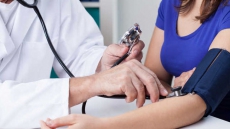Rejoice coffee lovers! Researchers have recently improved the accuracy of a scanner used to map the skull of nose and throat surgical patients with six cups of ground coffee.
The team has designed a 'granular jamming cap' filled with coffee grounds that can improve the accuracy of the sophisticated 'GPS' system that surgeons use for nose and throat surgery.
The findings indicated that the cap reduced targeting errors by 83 percent.
The study, conducted by Vanderbilt University proposed an effort to improve the reliability of the sophisticated "GPS" system that surgeons use for these delicate operations.
They have designed a "granular jamming cap" filled with coffee grounds that does a better job of tracking patient head movements than current methods.
Before surgery, a special scanner is used to map the location of the dots relative to key features on the patient's head: a process called registration. Then, during surgery an overhead camera observes the position of the dots allowing the navigation system to accurately track the position of the patient's head when the surgeon repositions it.

"These are very delicate operations and a sophisticated image guidance system has been developed to help the surgeons, but they don't trust the system because sometimes it is spot on and other times it is off the mark," said Robert Webster.
"When we heard about this, we began wondering what was causing these errors and we decided to investigate," Webster added.
They designed three tests to determine how well this " granular jamming cap" performed relative to the current headband in reducing targeting error:
"It's a very clever way--that doesn't involve drilling holes in patients' skulls--to greatly improve the accuracy of the guidance system when we are operating in the middle of a person's skull: a zone where the accuracy of the current system is inadequate," explained another researcher Paul Russell.
The study was presented at the International Conference on Information Processing in Computer-Assisted Interventions in Barcelona.






